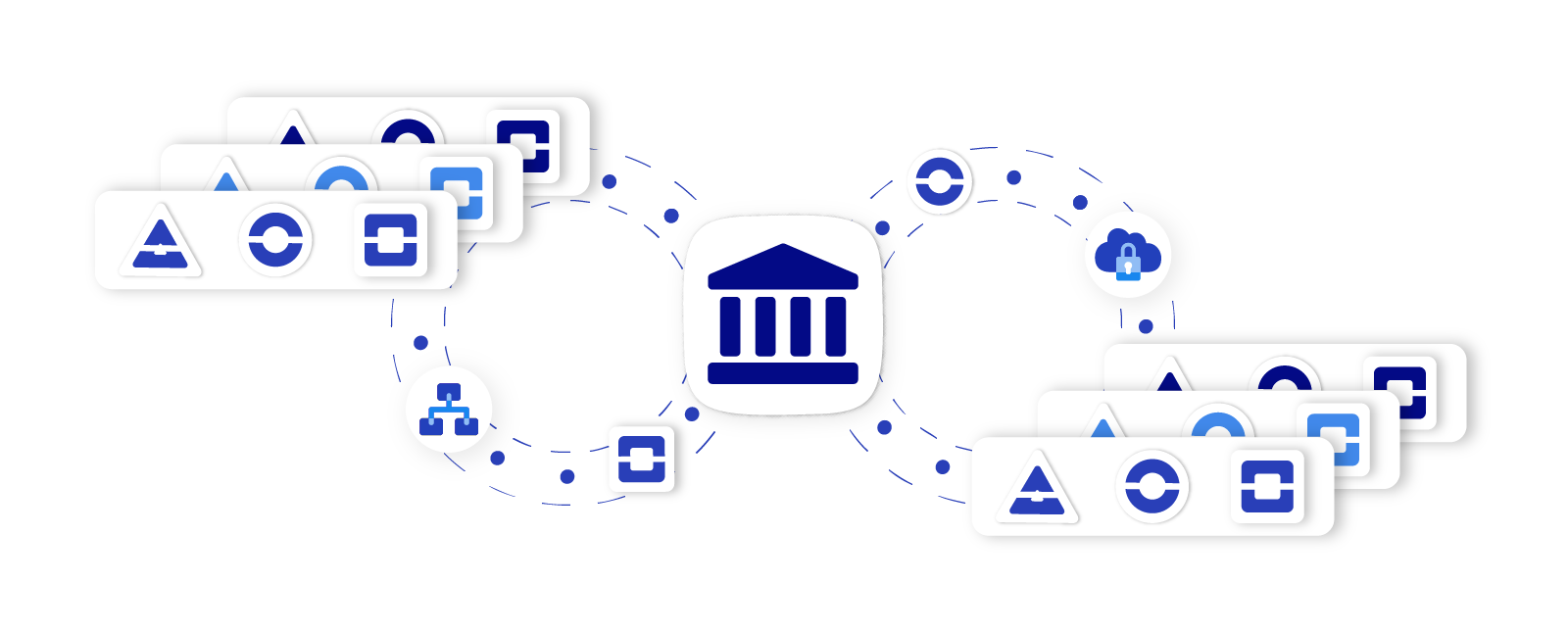In today’s digital landscape, big data has become a powerful force driving businesses to evolve and adapt to the rapidly changing market dynamics. This requires collecting, organizing, storing, and analyzing vast volumes of structured and unstructured data from various sources and transforming it into meaningful and actionable insights.
The importance of big data management lies in its ability to help organizations make data-driven decisions, identify trends and patterns, uncover hidden opportunities, and stay competitive in an increasingly data-centric world.
This article will delve into the logistics and importance of big data management, highlighting its significance for businesses across various industries.
We’ll also explore the challenges and complexities of managing big data, discuss practical strategies and solutions to address these issues, and showcase how effective big data management can pave the way for better decision-making, optimized revenue generation, and long-term success.
Managing the Big Data Elephant
The sheer volume of data organizations generates and collect is growing exponentially. This massive influx of information, often called the “big data elephant,” presents unprecedented opportunities and significant challenges for businesses seeking to harness its power.
The Most Common Challenges of Managing Big Data
Big data management demands a strategic approach to extract valuable insights. Organizations that fail to prioritize big data management face significant challenges in realizing their data’s full potential. The first step toward effective big data management is to develop a robust data architecture that can handle the sheer volume, velocity, and variety of data.
To make informed decisions, organizations must extract insights from big data. This requires advanced analytics tools that can process large datasets and identify patterns, trends, and anomalies. Machine learning algorithms, data mining techniques, and predictive analytics are some tools that can help organizations gain valuable insights from their data.
However, big data management is not just about technology. Organizations must also focus on data governance, which involves defining policies and procedures for data management, data quality, and data security. This is crucial for ensuring the data is accurate, reliable, and compliant with regulatory requirements.
Another major challenge in big data management is data integration. In many organizations, data is scattered across multiple sources, making it difficult to consolidate and analyze. To address this, organizations must invest in data integration platforms that seamlessly integrate data from disparate sources.
Data privacy is also a significant concern. Organizations must comply with data privacy regulations such as GDPR, CCPA, and HIPAA. They must implement robust data security measures, such as encryption, access controls, and data masking.
Big data management is a complex and challenging process that requires a strategic approach. Organizations must invest in technology, data governance, data integration, and data security to effectively manage their data and gain valuable insights.
When to Seek Help Managing Big Data
There are several situations where seeking assistance with managing big data can truly make a difference.
One of the most common situations is when they don’t have the in-house expertise to handle their data. With the sheer volume of data available, it’s no wonder many companies struggle to keep up. Seeking expert assistance can ensure your data is properly analyzed and used to its full potential.
Another scenario where outside help can be invaluable is when you’re looking to implement a new data management system or technology. With so many options, knowing which is right for your organization can be difficult. Working with a professional ensures that you’re making the best decision for your business and that the technology is properly integrated into your existing systems.
Data privacy and security is also a significant concern for many organizations. With cyber threats on the rise, your data should be properly protected. Seeking assistance from experts in this area can ensure your data is secure and you comply with all relevant regulations.
In addition, seeking outside help can be beneficial when optimizing your data usage. Many organizations collect data without fully understanding its potential value. Working with experts teaches you to better analyze and use your data to drive business growth and success.
Financial considerations should also be kept in mind when it comes to managing big data. Investing in outside help can be costly, so you must weigh this against the potential benefits. With better data management, you can improve efficiency, reduce costs, and ultimately drive profitability.
Managing big data can be complex and daunting, but seeking assistance from experts can ensure your data is properly analyzed, protected, and utilized to its full potential.
Most Popular Strategies for Managing Big Data
Though managing big data can be daunting for organizations of all sizes, several popular strategies can make this process easier. Companies can tailor their approach to their specific needs and goals by choosing one or a combination of these strategies.
One popular strategy for managing big data is to use cloud-based solutions. This approach allows organizations to store and process large amounts of data without expensive on-premises hardware. Cloud-based solutions also offer the added benefit of being scalable, so companies can easily add or remove resources as needed.
Another common strategy is to use data warehouses. These are specialized databases designed to store large amounts of structured data. Data warehouses offer several advantages over traditional databases, including faster query times and better support for complex analytics.
In addition to these strategies, many organizations turn to big data analytics tools. These tools allow companies to analyze large amounts of data in real-time, providing valuable insights to make informed business decisions. Some popular big data analytics tools include Hadoop, Spark, and Apache Cassandra.
Of course, managing big data isn’t just about choosing the right tools and technologies. It’s also important to establish clear data governance policies and procedures. This involves defining how data should be collected, stored, and accessed and establishing clear guidelines for data security and privacy.
Another key consideration is data integration. With so many data sources available, ensuring all data is properly integrated and accessible can be challenging. This is where data integration solutions come in, providing a way to easily connect and manage data from multiple sources.
Ultimately, the right strategy for managing big data will depend on various factors, including the size of the organization, the types of data being collected, and the specific business goals. By taking a thoughtful and strategic approach to big data management, organizations can unlock valuable insights and gain a competitive edge.
Common Pitfalls When Implementing Big Data Management
Big data management is a complex undertaking that requires attention to detail and a strategic approach, and many organizations struggle to navigate the common pitfalls that arise. But with the right mindset and approach, big data can be a powerful asset to your organization.
One of the biggest challenges when implementing big data management is ensuring your team has the necessary skills and expertise. Without these skills, your efforts will be in vain, and your results will be subpar. This is where investing in training and education is crucial as it will help your team stay up-to-date with the latest trends and technologies.
Another common mistake is failing to define clear goals and objectives for your big data initiatives. Without a clear roadmap, measuring success and determining whether your efforts are paying off can be difficult, so it’s important to establish clear metrics and benchmarks for measuring progress.
Data quality is also a critical factor in big data management. Ensuring your data is accurate, complete, and up-to-date is essential for making informed decisions and driving business success. This requires a strong data governance framework and effective data cleansing techniques to eliminate errors and inconsistencies.
Another challenge that organizations face is data security. With the increasing amount of data being collected, you must have robust security protocols to protect sensitive information from unauthorized access or breaches. This requires a comprehensive security strategy that includes encryption, access controls, and regular audits.
A key aspect of successful big data management is the ability to integrate and analyze data from multiple sources. This needs a sophisticated data integration strategy that can bring together data from disparate systems and make it accessible and actionable. Tools like data warehouses, data lakes, and data virtualization come into play here.
Lastly, a strong data culture is one of the most critical factors in successful big data management. It fosters a mindset that values data-driven decision-making and encourages experimentation and innovation. It requires a commitment to continuous learning and improvement and a willingness to embrace change and adapt to new trends and technologies.
Ultimately, avoiding these common pitfalls in implementing big data management and fostering a strong data culture enable organizations to unlock the full potential of big data and drive business success.
Popular Big Data Management Tools & Software Solutions
The abundance of data generated daily creates a demand for efficient data management and analysis. To meet this demand, several big data management tools and software solutions have emerged in the market.
One of the most popular data management tools is Apache Hadoop. It is an open-source framework that enables distributed processing of large data sets across clusters of computers. It provides a cost-effective way to store and analyze big data, making it an attractive option for businesses of all sizes.
Another popular data management tool is Apache Spark. It is a fast and general-purpose cluster computing system that processes large data sets in real-time. It has become a preferred choice for many organizations because of its ability to handle both batch processing and stream processing.
If you’re looking for a more commercial option, IBM’s InfoSphere Information Server is a comprehensive data integration and management platform that can streamline your data processes. With InfoSphere, you can automate data cleansing, integration, and replication, all in one place.
Meanwhile, Apache Cassandra is a distributed NoSQL database optimized for handling large amounts of data across multiple servers. It is fault-tolerant and highly scalable, making it a preferred choice for big data applications.
MongoDB is another NoSQL database well-suited for handling unstructured data, such as social media feeds and sensor data.
For real-time data streams, Apache Kafka is a distributed messaging system often used for building real-time data pipelines and streaming applications.
In addition, Elasticsearch is a search and analytics engine designed to handle large amounts of data in real-time. It is often used for logging and monitoring applications and full-text search and business analytics.
Finally, Splunk is a software platform that simplifies the collection, analysis, and visualization of machine-generated data in real-time. It is used for IT operations management, security, and business analytics.
Selecting the right big data management tool or software solution depends on the specific needs of businesses, as well as factors such as scalability, performance, and ease of use. With several options available, they can choose a solution that meets their requirements and aids them to make informed decisions.
Pros: Big Data Management Tools
Big data management tools offer many benefits to organizations. One of their main advantages is their scalability. These tools can scale to handle data growth over time, allowing organizations to store and process more data as their needs change.
Additionally, big data management tools are designed for speed, using parallel processing and distributed computing to process data more quickly and efficiently than traditional data management systems.
Another advantage of big data management tools is their cost-effectiveness. With cloud-based solutions, organizations can avoid the need for expensive hardware and software, reducing costs.
Big data management tools are also flexible, allowing organizations to use different data sources and formats. This enables organizations to analyze data from different sources, providing a more comprehensive view of their operations.
They also enable organizations to make informed decisions based on accurate and timely data. By analyzing data quickly and accurately, organizations can identify growth opportunities, optimize their operations, and reduce costs.
Furthermore, big data management tools offer advanced security features to protect data from unauthorized access or cyberattacks. This is important as managing large amounts of data increases the risk of data breaches and other security threats.
Cons: Big Data Management Tools
Big data management tools also come with certain drawbacks organizations need to consider. One of the main cons of using these tools is their complexity. Setting up and operating these tools can be complex, and organizations may need to invest in training or hire specialized personnel to manage them effectively.
Another potential issue with big data management tools is integration. These tools may not easily integrate with existing systems or applications, leading to compatibility problems that are challenging to resolve, especially when using different tools from different vendors.
Data quality is another concern when managing big data. Poor data quality can lead to inaccurate or unreliable data analysis, so it’s essential to ensure data is clean, complete, and consistent for reliable results.
Cost is another consideration. While these tools can be cost-effective, they can also be expensive to implement and maintain, particularly when advanced features or customized solutions are required.
Furthermore, using big data management tools can create new security risks, despite offering advanced security features. Organizations need proper security measures to protect their data from unauthorized access or cyberattacks.
Finally, managing large amounts of data can raise privacy concerns, making it crucial for organizations to comply with data protection regulations and have processes to protect sensitive data.
Big Data Management for Revenue Initiatives
Big data has become essential for businesses looking to improve their revenue initiatives. To harness its full potential for revenue generation, businesses need to employ effective big data management strategies.
What Is Big Data Revenue Management?
In this fast-paced business world, organizations need to stay ahead of the curve to maximize their profits, thus the need for big data revenue management. By using advanced analytics and data-driven decision-making, companies can optimize their revenue generation strategies like never before.
Applying big data revenue management is all about understanding your customer’s behavior and preferences. It requires collecting and analyzing vast amounts of data to identify patterns, trends, and opportunities. By doing so, businesses can tailor their products and services to better meet their customers’ needs, ultimately leading to increased sales and profits.
With the rise of big data and the increasing amount of information available, organizations that fail to adopt revenue management strategies risk falling behind their competitors. The key is to leverage this data to make informed decisions about pricing, marketing, and other revenue-generating activities.
But big data revenue management isn’t just about crunching numbers. It’s also about understanding the human element behind the data. By combining quantitative analysis with qualitative insights, businesses can better understand their customers’ needs and preferences, which, in turn, leads to more effective revenue-generation strategies.
Ultimately, big data revenue management is about using data to drive decision-making rather than relying on gut instinct or guesswork.
Revenue-Specific Big Data Challenges
Maximizing revenue through big data may seem like a no-brainer, but it’s not without challenges. Organizations must tackle these hurdles head-on to truly unlock the power of big data.
Firstly, the sheer volume and complexity of big data can be overwhelming. Without a proper strategy and infrastructure, data can quickly become disorganized and difficult to analyze. This highlights the importance of data management.
Secondly, privacy concerns are becoming increasingly prevalent in the age of big data. Organizations must ensure they collect and use data ethically and legally or risk facing backlash from consumers and regulators.
But perhaps the biggest challenge is the need for skilled data analysts. While technology has made it easier to collect and store data, analyzing and interpreting that data still requires human expertise. Organizations must invest in training and hiring data professionals to make the most of their big data.
Despite these challenges, the potential benefits of big data cannot be ignored. From personalized marketing to predictive analytics, organizations can use big data to gain insights and make informed decisions that drive revenue growth.
Revenue-Specific Big Data Strategies & Solutions
Revenue-specific big data strategies and solutions are becoming increasingly vital as companies seek to optimize their revenue streams by leveraging the wealth of available data.
To create a strong foundation for these strategies, businesses must establish a robust data collection and integration system that consolidates data from various sources, such as sales channels, customer interactions, marketing campaigns, and social media platforms. By integrating these data sets, companies can create a comprehensive view of their customers to identify patterns, trends, and opportunities that can drive revenue growth.
One of the most effective ways to maximize revenue is by targeting specific customer segments with personalized offerings. Companies can use big data analytics to identify customer segments based on demographics, behavioral patterns, and purchase history. This information allows them to develop targeted marketing campaigns, tailor their product offerings, and deliver personalized experiences that increase customer engagement and higher revenue.
Additionally, big data can help businesses determine the optimal pricing strategy for their products and services. Analyzing historical data and market trends allows companies to identify the best price points that maximize revenue without alienating customers. Real-time data analysis can also help businesses react to changes in demand and competition, allowing them to adjust prices accordingly and optimize revenue.
Accurate forecasting and demand planning are crucial for businesses to ensure they have the right resources to meet customer needs and drive revenue growth. Big data analytics can help companies forecast demand, identify trends, and anticipate market shifts, enabling them to make more informed decisions about inventory management, production planning, and staffing levels.
By implementing these revenue-specific big data strategies and solutions, businesses can drive growth in an increasingly data-driven market.
When Is Big Data Management Consulting Helpful?
Now let’s explore various scenarios in which big data management consulting can be of great value to organizations.
Benefits of Big Data Management Consulting
With the vast amounts of data generated every day, it’s no longer enough to simply collect and store it. To stay ahead of the competition, organizations must be able to extract meaningful insights from their data and make informed decisions based on that information.
This is where big data management consulting comes in. Partnering with a consulting firm specializing in big data management can help organizations unlock the power of their data. From data analysis and visualization to predictive modeling and machine learning, a big data consultant can help organizations make sense of their data and use it to drive business growth.
Big data management consulting also offers significant cost savings for organizations. They can reduce their overall IT costs and improve their bottom line by streamlining data storage and analysis processes and eliminating inefficiencies. Plus, leveraging the latest big data technologies and techniques enables them to have a deeper understanding of their customers and improve their marketing strategies, resulting in increased revenue and profits.
Another benefit of big data management consulting is improved decision-making. By analyzing large volumes of data and identifying patterns and trends, organizations can make more informed decisions about everything, from product development to marketing campaigns. This helps them stay ahead and adapt quickly to changing market conditions.
But perhaps the most significant benefit of big data management consulting is its ability to drive innovation. With access to cutting-edge technologies and data analysis techniques, consultants can help organizations develop new products and services, enter new markets, and explore new business models. This can result in game-changing innovations that can transform entire industries and lead to long-term growth and success.
The Top 5 Big Data Consulting Firms in the United States
The United States is home to several big data consulting firms that provide a range of services to help organizations optimize their big data strategy and operations.
One such firm is Accenture, which provides global consulting services to clients in various sectors such as healthcare, financial services, and retail. Their big data solutions include data management, analytics, and machine learning.
Another renowned global professional services firm is Deloitte, which offers big data consulting services like data strategy, governance, management, and analytics to clients in healthcare, financial services, and government.
Capgemini is yet another global consulting firm that provides big data consulting services such as data strategy, governance, management, and analytics to clients in industries such as retail, telecommunications, and healthcare.
IBM, a global technology company, offers big data consulting services like data management, analytics, and artificial intelligence to clients in the healthcare, financial services, and retail sectors.
Lastly, Cognizant is a global consulting firm that provides big data consulting services such as data management, analytics, and machine learning to clients in various industries, including healthcare, financial services, and retail.
These five big data consulting firms in the United States bring their expertise and experience to help organizations improve data quality, gain valuable insights and analysis, and make informed decisions based on accurate and timely data.
Choosing the Right Big Data Consulting Firm for Your Business
Choosing the right consulting firm can make all the difference in optimizing your strategy and operations. But with so many options out there, how do you know which one to choose?
First and foremost, consider the firm’s experience. You want a team with a proven track record of success in your industry and the specific challenges you want to address. Don’t be afraid to ask for case studies and references to support their claims.
Next, make sure the firm has a deep understanding of your business and its unique needs. They should take the time to understand your goals, challenges, and existing infrastructure. Look for a firm that takes a collaborative approach, working closely with your team to ensure seamless integration.
Another key factor to consider is the firm’s technical expertise. Big data is a complex field, and you want a team with the skills and knowledge to handle your specific requirements. Look for a firm that is up-to-date on the latest tools and technologies and has a strong team of data scientists and engineers.
Of course, budget is always a concern. While finding a firm that fits your budget is important, don’t make cost the sole factor in your decision. Remember, you get what you pay for, and investing in a high-quality consulting firm can pay off in the long run with improved efficiency and ROI.
Communication is also crucial when working with a big data consulting firm. Look for a responsive and transparent team that keeps you in the loop on progress and any potential roadblocks. A good consulting firm should also be able to clearly explain complex concepts and data to non-technical stakeholders.
Finally, consider the firm’s cultural fit. You want a team that shares your values and work style and that you feel comfortable working with over the long term. Don’t underestimate the importance of a good working relationship when achieving your big data goals.
Final Thoughts: Setting Yourself Up for Big Data Management Success
Effectively navigating the complexities of big data management is crucial for organizations seeking to harness the full potential of data-driven decision-making. By addressing challenges such as data quality, integration, privacy, scalability, and skill gaps and implementing strategic solutions like advanced analytics, real-time processing, customer-centric approaches, and technology adoption, businesses can set themselves up for big data management success.
As we move forward, the importance of big data management will only continue to grow, with increasing data volumes, the emergence of new data sources, and the continuous evolution of advanced analytics technologies. Organizations proactively investing in robust big data management strategies and infrastructure will be better positioned to adapt to the dynamic market landscape, drive innovation, and maintain a competitive edge.
Ultimately, embracing the power of big data management will enable businesses to make more informed decisions, optimize their operations, enhance customer experiences, and unlock new revenue opportunities. By setting the foundation for big data management success today, they can pave the way for a brighter, more data-driven future.
Let Kizen help you effectively navigate the complexities of big data management. Our strategic solutions can help you address challenges like data quality, integration, and scalability. Simply connect with us on our website so that we can schedule a time to chat.
FAQs: Big Data Management
This section will address some of the most frequently asked questions related to managing big data, which has become a critical aspect of many industries.
Why is big data management important?
Big data management is crucial as it allows organizations to turn large amounts of data into valuable insights and make data-driven decisions. Effective big data management helps identify trends, patterns, and relationships in their data, which can help them optimize their operations, improve customer engagement and loyalty, and drive revenue growth. It also helps businesses reduce costs by streamlining processes, improving efficiency, and identifying areas where resources can be allocated more effectively.
How can big data analytics help businesses make better decisions and improve their operations?
Big data analytics can provide insights and identify patterns that might have otherwise gone unnoticed. This information can help businesses make data-driven decisions that are more accurate and informed, leading to improved operations, increased efficiency, and cost savings.
Additionally, big data analytics can be used to identify potential risks and opportunities so businesses can act proactively and stay ahead of the competition.
What is big data governance, and why is it crucial for organizations?
Big data governance is the process of managing the availability, usability, integrity, and security of the data used by an organization. It involves defining policies, standards, and procedures for managing data to ensure it is consistent, accurate, and secure.
Big data governance is crucial for organizations because it helps them mitigate risks associated with data management, improve data quality, and comply with legal and regulatory requirements. It also helps them ensure their data is used ethically and protected from unauthorized access or misuse.
What are the security and privacy implications of managing big data, and how can they be addressed?
The security and privacy implications of managing big data include the increased risk of data breaches, unauthorized access, and potential misuse of sensitive information. As the volume and complexity of data grow, organizations face challenges in maintaining the confidentiality, integrity, and availability of their data assets.
To address these, organizations should implement robust data security measures such as encryption, access controls, and secure data storage. Additionally, adopting privacy-preserving techniques like anonymization and data masking can help protect individuals’ identities within large datasets. Regular security audits, employee training, and adherence to data protection regulations, such as GDPR and CCPA, are also crucial for ensuring compliance and mitigating risks associated with big data management.
Can big data management help businesses increase revenue and/or reduce costs?
Big data management can indeed help businesses increase revenue and reduce costs by enabling them to make data-driven decisions, optimize processes, and improve customer experience. By harnessing the power of big data analytics, organizations can uncover patterns and trends that reveal opportunities for revenue generation, such as new markets or improved products and services.
Moreover, it allows businesses to identify inefficiencies and redundancies in their operations, leading to streamlined workflows and cost reductions. By leveraging big data insights, organizations can enhance decision-making, tailor marketing strategies, and deliver personalized customer experiences, increasing revenue and reducing operational costs.











